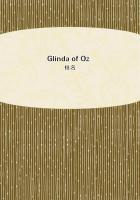We are told many times that the industrial city is a new thing upon the face of the earth, and that everywhere its growth has been phenomenal, whether we look at Moscow, Berlin, Paris, New York, or Chicago. With or without the mediaeval foundation, modern cities are merely resultants of the vast crowds of people who have collected at certain points which have become manufacturing and distributing centres.
For all political purposes, however, the industrial origin of the city is entirely ignored, and political life is organized exclusively in relation to its earlier foundations.
As the city itself originated for the common protection of the people and was built about a suitable centre of defense which formed a citadel, such as the Acropolis at Athens or the Kremlin at Moscow, so we can trace the beginning of the municipal franchise to the time when the prob- lems of municipal government were still largely ( 181) those of protecting the city against rebellion from within and against invasion from without. A voice in city government, as it was extended from the nobles, who alone bore arms, was naturally given solely to those who were valuable to the military system. There was a certain logic in giving the franchise only to grown men when the existence and stability of the city depended upon their defence, and when the ultimate value of the elector could be reduced to his ability to perform military duty. It was fair that only those who were liable to a sudden call to arms should be selected to decide as to the relations which the city should bear to rival cities, and that the vote for war should be cast by the same men who would bear the brunt of battle and the burden of protection. We are told by historians that the citizens were first called together in those assemblages which were the beginning of popular government, only if a war was to be declared or an expedition to be undertaken.
But rival cities have long since ceased to settle their claims by force of arms, and we shall have to admit, I think, that this early test of the elector is no longer fitted to the modern city, whatever may be true, in the last analysis, of the basis for the Federal Government.
It has been well said that the modern city is a ( 182) stronghold of industrialism, quite as the feudal city was a stronghold of militari**, but the modern city fears no enemies, and rivals from without and its problems of government are solely internal.
Affairs for the most part are going badly in these great new centres in which the quickly congregated population has not yet learned to arrange its affairs satisfactorily. Insanitary housing, poisonous sewage, contaminated water, infant mortality, the spread of con- tagion, *****erated food, impure milk, smokeladen air, ill-ventilated factories, dangerous occupations, juvenile crime, unwholesome crowding, prostitution, and drunkenness are the enemies which the modern city must face and overcome would it survive.
Logically, its electorate should be made up of those who can bear a valiant part in this arduous contest, of those who in the past have at least attempted to care for children, to clean houses, to prepare foods, to isolate the family from moral dangers, of those who have traditionally taken care of that side of life which, as soon as the population is congested, inevitably becomes the subject of municipal consideration and control.
To test the elector's fitness to deal with this situation by his ability to bear arms, is absurd. A city is in many respects a great business cor-( 183)-poration, but in other respects it is enlarged housekeeping. If American cities have failed in the first, partly because office holders have carried with them the predatory instinct learned in competitive business, and cannot help "working a good thing" when they have an opportunity, may we not say that city housekeeping has failed partly because women, the traditional housekeepers, have not been consulted as to its multiform activities? The men of the city have been carelessly indifferent to much of this civic housekeeping, as they have always been indifferent to the details of the household. They nave totally disregarded a candidate's capacity to keep the streets clean, preferring to consider him in relation to the national tariff or to the necessity for increasing the national navy, in a pure spirit of reversion to the traditional type of government which had to do only with enemies and outsiders.
It is difficult to see what military prowess has to do with the multiform duties, which, in a modern city, include the care of parks and libraries, superintendence of markets, sewers, and bridges, the inspection of provisions and boilers, and- the proper disposal of garbage. Military prowess has nothing to do with the building department which the city maintains to see to it that the basements be dry, that the bedrooms be large ( 184) enough to afford the required cubic feet of air, that the plumbing be sanitary, that the gas-pipes do not leak, that the tenement-house court be large enough to afford light and ventilation, and that the stairways be fireproof. The ability to carry arms has nothing to do with the health department maintained by the city, which provides that children be vaccinated, that contagious diseases be isolated and placarded, that the spread of tuberculosis be curbed, and that the water be free from typhoid infection. Certainly the military conception of society is remote from the functions of the school boards, whose concern it is that children be educated, that they be supplied with kindergartens and be given a decent place in which to play. The very multifariousness and complexity of a city government demands the help of minds accustomed to detail and variety of work, to a sense of obligation for the health and welfare of young children, and to a responsibility for the cleanliness and comfort of others.














